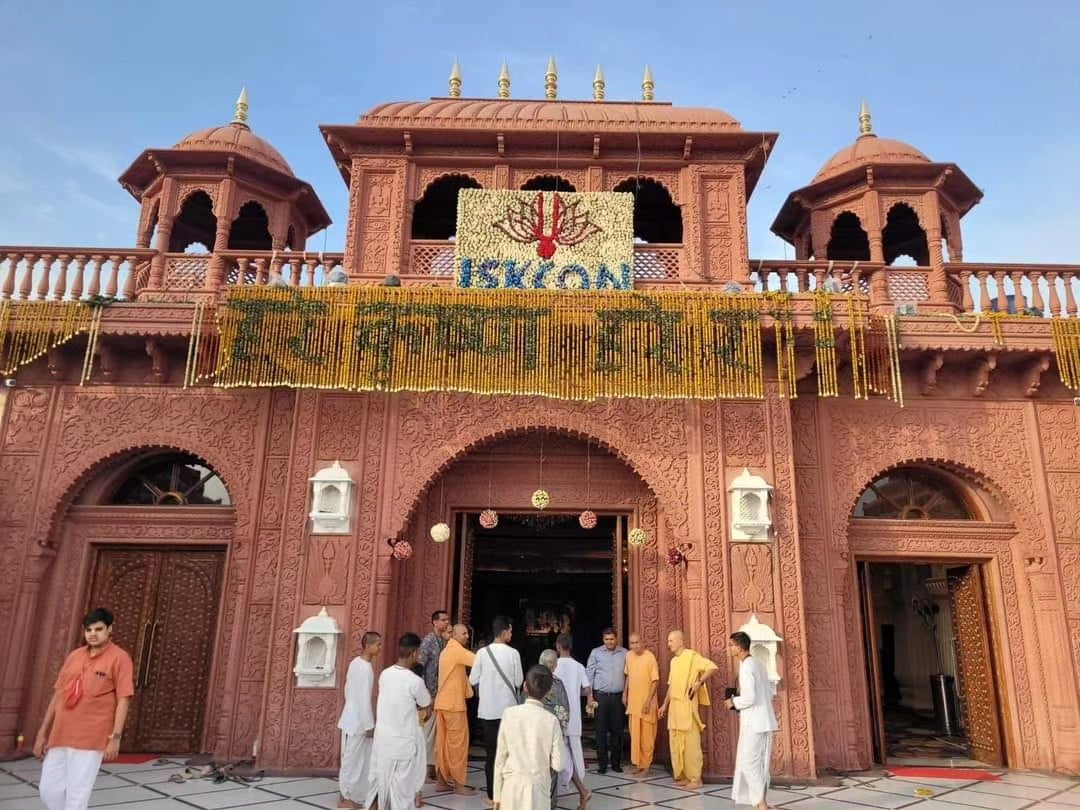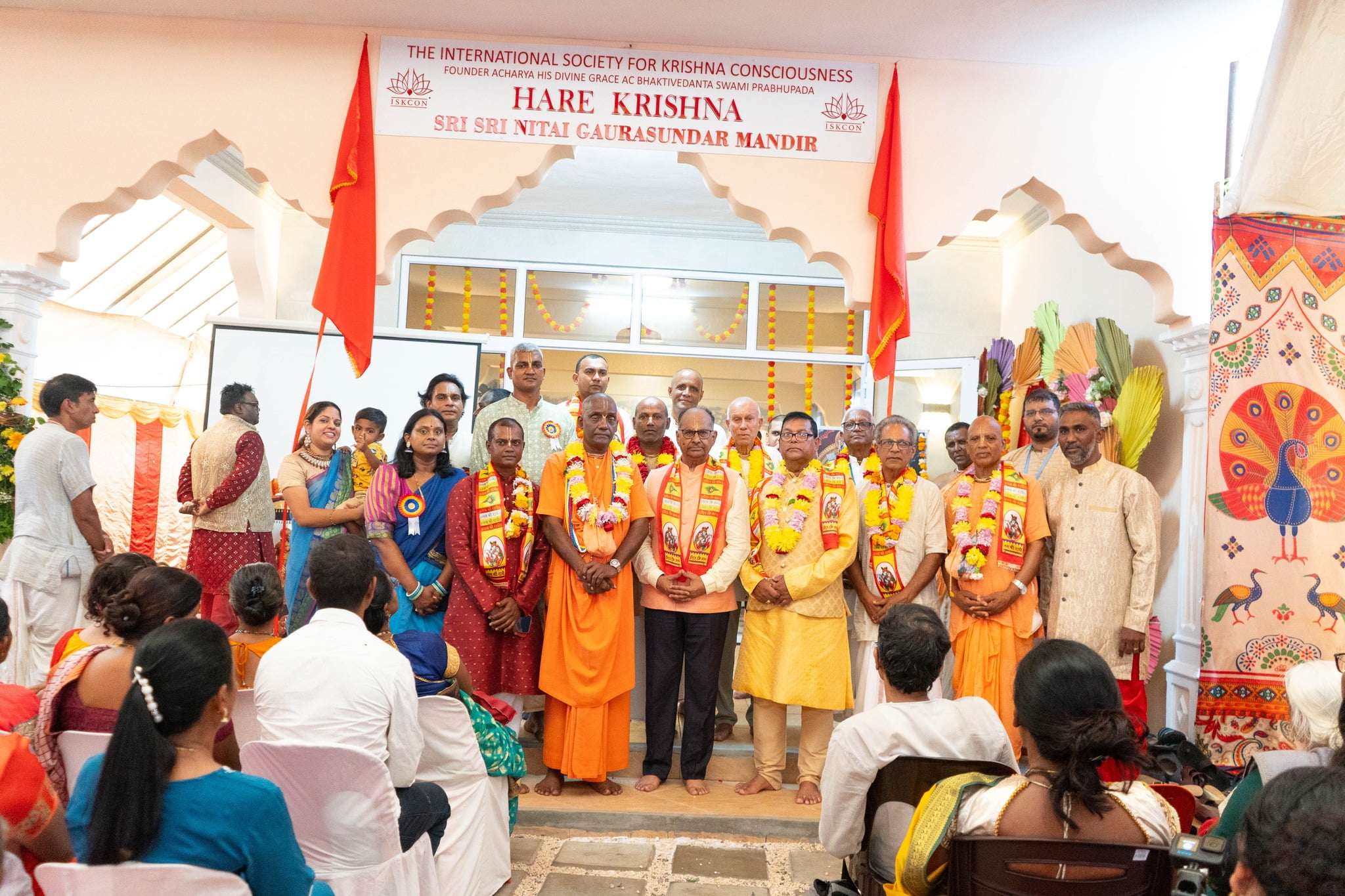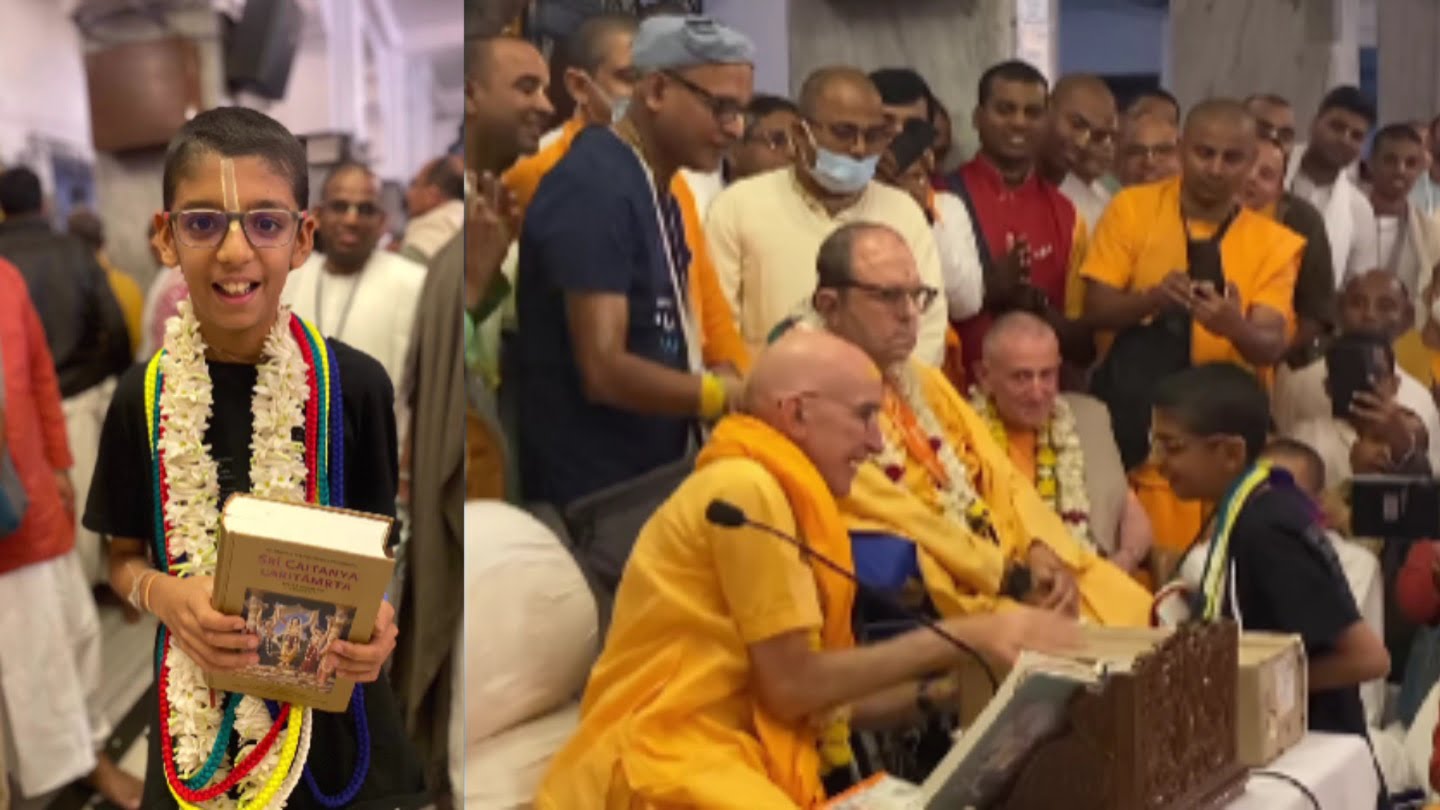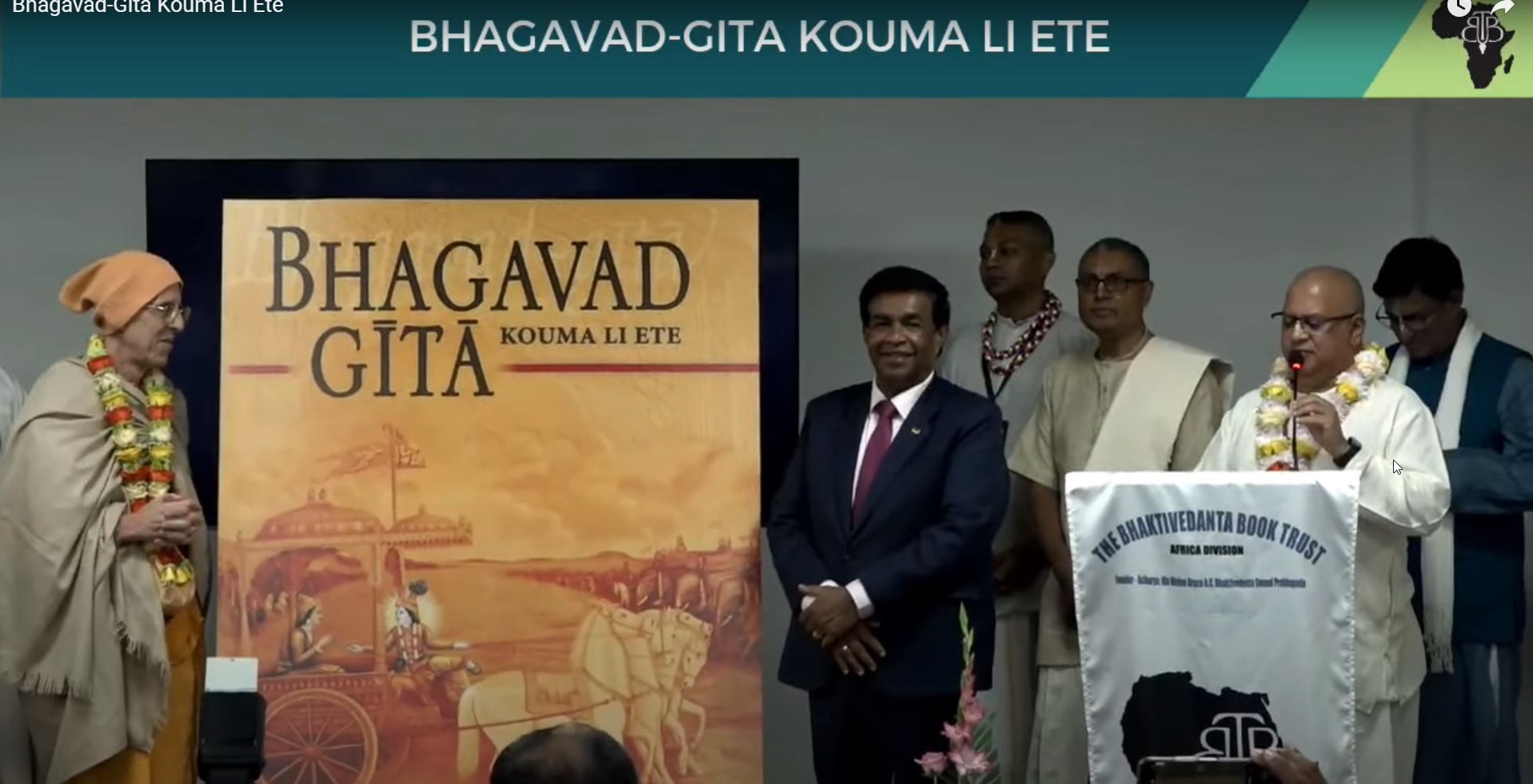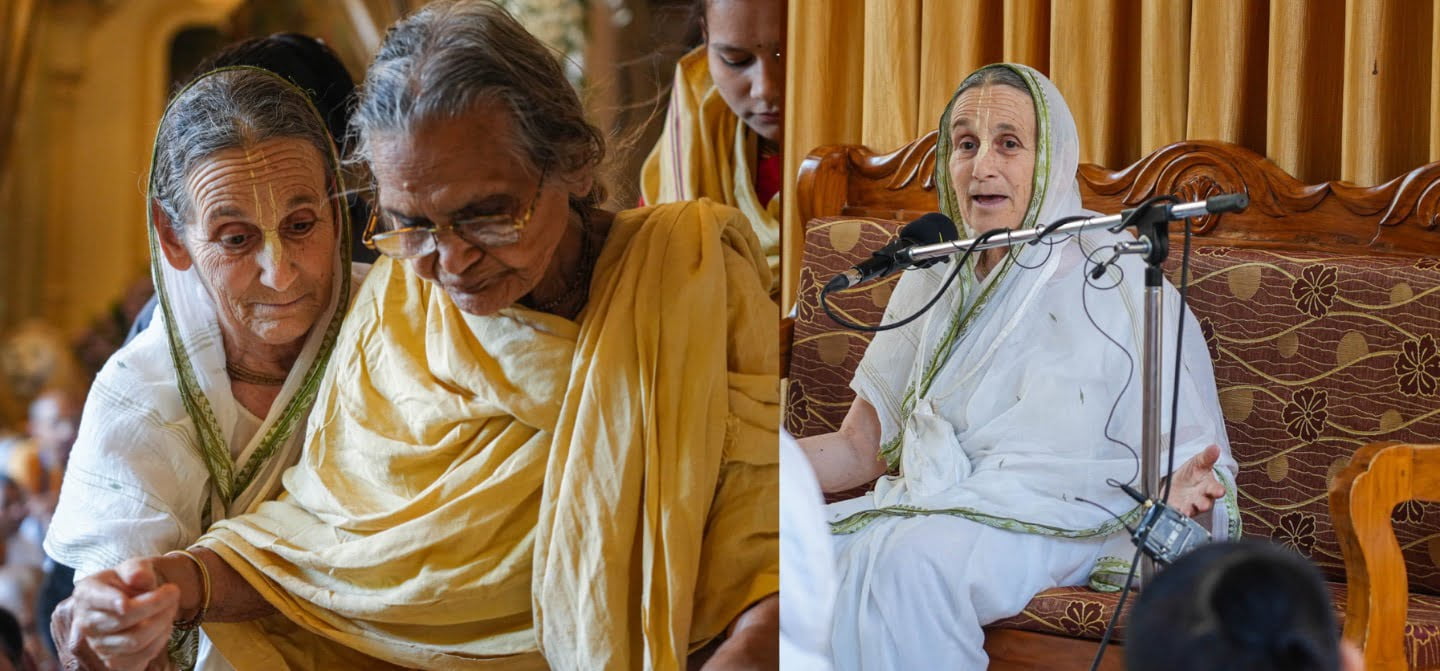Bhakti Center Offers Yoga Teacher Training Grounded in Vaishnava Tradition
By Madhava Smullen | Feb 20, 2021
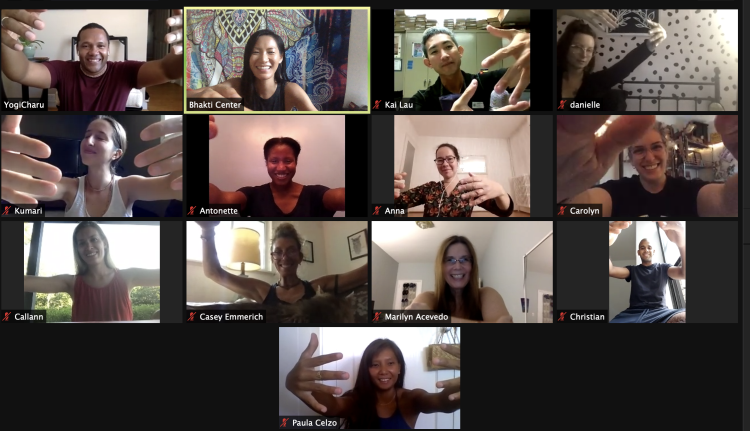
Since the beginning of the Covid-19 pandemic, the Bhakti Center in New York City has been offering a new selection of virtual yoga teacher training and meditation teacher training programs, as well as training in Ayurveda and kirtan.
Taking advantage of the online format, the classes are held at times that also accommodate a global audience – often hour-and-a-half sessions from 5:30 to 7:00pm on weekdays, with some modules offered between 10:00am and 5:00pm on weekends. This draws a wide and varied audience of all age groups, phases of life, and backgrounds from around the world.
Program Director Doyal Gauranga Das also hopes the global platform will facilitate ISKCON devotees who would like an authentic learning experience in various practices, taught by devotees from a Vaishnava perspective.
“Devotees around the world have interest in yoga and meditation, but it can be tough to find schools or institutions that train according to our Vaishnava lineage,” he says. “We want to be able to offer that support for devotees to get trained as teachers and to feel empowered as leaders.”
Programs include both 200-hour and 300-hour yoga teacher trainings, as well as meditation teacher trainings levels 1, 2, and 3, and 50-hour yoga nidra teacher training, all taught by Charuchandra Das aka Yogi Charu.
The 300-hour yoga teacher training, for example, covers intermediate to advanced postures; advanced pranayama meditation techniques; understanding the five basic elements that make up the body; Swara Yoga (the science of energetic rhythms and breath regulation); japa yoga; and mantra meditation. Teacher trainings equip students to teach on a basic level, although many take them simply to go deeper in their own practice rather than to teach others.
Meanwhile the Living Ayurveda and Ayurveda: The Subtle Body trainings, taught by Dhyana Masla, Vira Tansey, and others feature modules on digestion and nutrition; disease pathology; cooking; Ayurvedic psychology; why and how to Abhyanga (apply oils to the body); and the history and philosophy of Ayurveda.
Kirtan training, taught by Doyal Gauranga and Kishor Chandra, includes understanding how the harmonium works; basic rhythm and timing; the meaning of mantra; the mood of kirtan; and the history of kirtan. Teachers also discuss how to live a life that facilitates a powerful kirtan experience.
In the near future, the Bhakti Center will also be offering cooking training with Chef Om from Los Angeles.
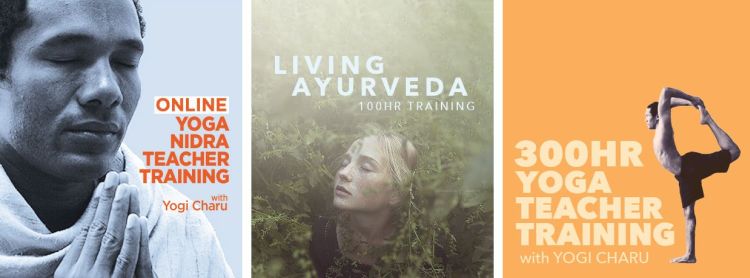
Classes include Yoga and Ayurveda training
During classes on Zoom, students can interact live, ask questions, give feedback and share reflections. Although not in person, the format allows for a lot of interaction in trainings on topics like yoga and kirtan. WhatsApp groups or email chains are also set up for the group of students outside of the sessions, to allow them to further make friends, and share experiences and resources.
According to Doyal Gauranga, trainings tie into the overall bhakti tradition, and teach students how the different skills and lifestyles they’re learning can support them on their spiritual journeys.
“Whether it’s a yoga asana, Ayurveda and wellness, or meditation, we talk about how it supports a devotional lifestyle,” he says. “In addition to the practice itself, there’s a lot of character development and self-reflection. We assess, ‘How do I use these tools in a mood of service, rather than as an expression of ego?’”
He continues, “For example, when we teach kirtan, we try to focus on kirtan as not a musical performance. Although it’s helpful to know music well, the true spirit of kirtan is something beyond the material; and our real work in having a powerful kirtan is getting our ego out of the way. Our real work of yoga training is transforming our heart and bringing a stillness to the mind so that we can focus our meditation. Our real offering as yoga teachers is serving other people on their spiritual journey. And the real purpose of taking care of our health is so that we can be vessels of service for others, honoring our body as a temple for our spirit and for God who lives within the heart. We frame all of the teachings in that general understanding.”
Looking ahead, Doyal Gauranga feels that the online learning the pandemic pushed the Bhakti Center to explore is here to stay, even in a potential future where people are able to gather in-person again.
“There are some things you can’t really replicate online,” he says. “Things like yoga teacher trainings and kirtans are enhanced by an in-person experience, and there will always be a need and a desire to have them in person. But the online platforms won’t go away, because there will always be people who can’t travel to attend in person, or aren’t available at the time of the class because they’re working.”
“That’s why we’re looking to build more robust back-end online platforms, that will able to facilitate greater online experiences for wider audiences and greater numbers of people,” he concludes. “We look forward to balancing the two worlds of in-person experiences and online experiences, and continuing to develop a global community.”
*****
To explore and register for online trainings, please visit: http://bhakticenter.org/online/




